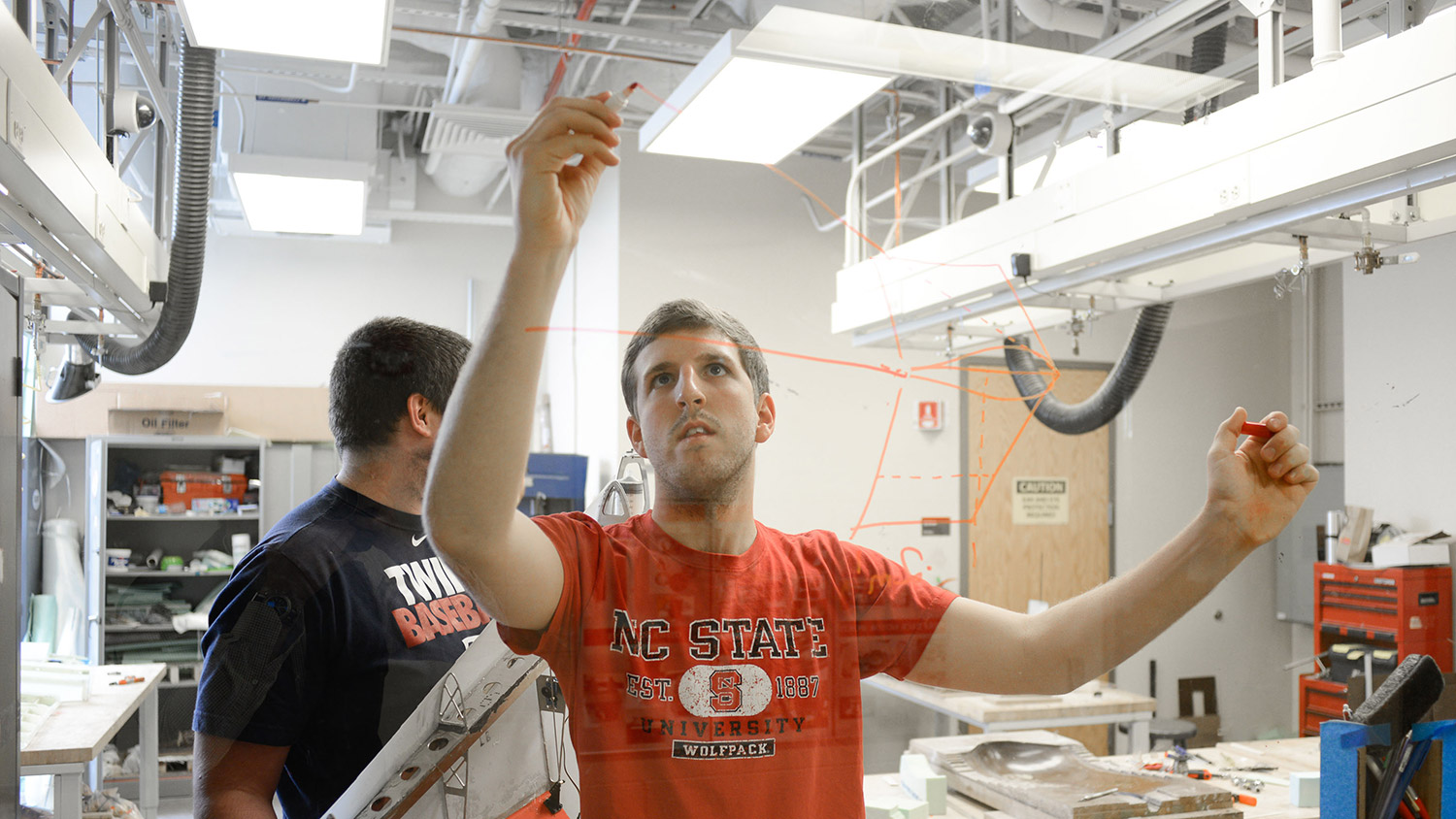Applying Written Communication Skills in Engineering
Tarek Aziz, assistant professor in the Department of Civil, Construction and Environmental Engineering, discusses the importance of written communication skills in engineering.

By Alison Krowiak, DASA Assessment
This article is part of a series on NC State’s Pack Proficiencies, which include the five skills all NC State undergraduates should develop before they graduate: written communication, oral communication, quantitative literacy, critical thinking and creative thinking.
Written communication is defined as the “purposeful development, expression and revision of ideas in writing for specific audiences. Effective written communication follows appropriate genre conventions and may include a combination of text and other media.” Faculty throughout NC State understand that developing strong written communication skills will serve students well during their education and beyond (See our past interview with Alice Lee, associate professor in the Department of Biological Sciences, about the value of written communication for students within her discipline.)
Tarek Aziz, assistant professor in the Department of Civil, Construction, and Environmental Engineering, explains that the ability to communicate effectively will serve students well beyond their graduation. In the interview below, Aziz describes how students in the College of Engineering might experience written communication in their discipline and how written communication competencies could help students become informed and engaged citizens. Interview excerpts are edited for brevity and clarity.

Why is it important for students to develop strong written communication skills?
“It is a great life skill to be able to take in information, digest it, determine its appropriateness, and summarize it in a concise way. If you can communicate effectively in written form, you will have greater opportunities for leadership. You’ll get to work on important projects if you are the one that can distill the ideas into written form and self-edit. Thinking of the appropriate form of written communication is important, too. It’s really important for students entering the workforce to be able to tell what forms of communication are most appropriate for a situation. For example, they should ask themselves, ‘Is this an email, a technical report or a memorandum?’ Students who understand this develop their written communication competencies and will be able to really accelerate their careers.”
How do students in your field use written communication skills upon graduation?
“When students graduate, one of the most surprising things they find is that they are writing a lot more than they may have thought they were going to be writing. Engineers, in particular, may be working on very technical projects much of the time, but then they need to be able to communicate about those projects to people who may not have the same technical background. Engineering students will also need to be able to read, understand, interpret and communicate about regulations in written form. Engineering work may not always start with writing, but it’s going to involve interpreting or drafting written work at some point in the process. So the ability to communicate in written form is very useful.
For civil and environmental engineering, in particular, our students will go out and design good infrastructure, of course, but I want them to also communicate the importance of infrastructure to the rest of the world. Written competencies are going to be foundational to help our students go out and help the world understand the importance of infrastructure and share technical ideas to the masses.”
How can students use written communication to be thoughtful and engaged citizens?
“Graduating students is the most important thing we do here, and we are going to be graduating leaders. We’re going to be graduating people who will go on to change the world, and writing is so integral to that. It’s a big part of being a good citizen to understand information, read articles and social media, and look at that with a critical eye to interpret it or contest what’s said in written form. The ability to communicate effectively is really powerful, and students can help society by developing and utilizing those skills. That might mean writing meaningful letters to elected officials, serving on public committees that help make sure politicians are making informed decisions, and writing reports or summaries of those things.”
How can students improve their written communication competencies?
“One of the best things you can do is read a lot and write a lot, and then get feedback on your writing. A really great way to improve your writing is to get involved in undergraduate research, for example, where you will have to summarize what you’re doing in a concise way. Most students haven’t done that until they get involved in something like undergraduate research. Your advisor will get the opportunity to give you feedback, and that process of receiving feedback can really make a difference. There are plenty of faculty who are willing to give feedback as well. So my advice would be to get involved in things that involve writing, read quality examples of writing, and get feedback from faculty in your domain area so you can learn how to write in that field.”
- Categories:


